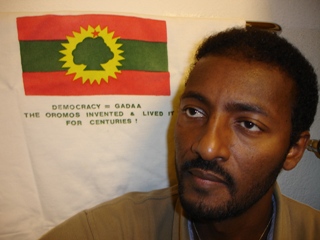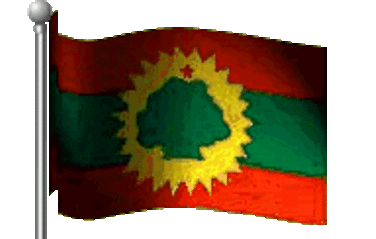Aid Group Pulls Out of Eastern Ethiopia, Charging Government Harassment

Source: VOA News
By Peter Heinlein Addis Ababa
The Swiss section of the aid group Doctors Without Borders (MSF) is halting humanitarian operations in a conflict-wracked region of eastern Ethiopia, charging government harassment and intimidation. VOA's Peter Heinlein has details from the Ethiopian capital, Addis Ababa.
The Swiss section of Doctors Without Borders says it decided to withdraw from Ethiopia's Fiiq region in the face of repeated administrative hurdles and intimidations, including the detention of humanitarian staff. Fiiq is in the eastern Somali region, where Ethiopian troops are waging a fierce counterinsurgency campaign against rebels of the Ogaden National Liberation Front (ONLF).
A statement sent to reporters Thursday says medical teams dispatched to the region in December of last year were prevented from providing urgently needed care to vulnerable populations.
Doctors Without Borders spokesman in Addis Ababa Stefan Reynier told VOA that over the past six months, aid workers could only work for 10 weeks in the town of Fiiq, and only five weeks in outlying areas, where conditions are more severe. He says government officials repeatedly harassed and intimidated aid workers.
"In January and February, we tried to develop an evaluation. And the team was arrested with no reason for three weeks in spite [of the fact that] they had all authorization," he recalled. "Later, in March and April, we were ordered to withdraw all our team for immigration issues. We tried to engage in dialogue and find a compromise, in order to have the right stature and to develop an operation. It has not been possible so far, and we don't see in the near future a possibility to find a compromise. And in June, up to this week, we had five employees arrested for three weeks for no reason and no official information."
A senior Ethiopian government official told VOA he was aware of the aid group pullout, but had no other immediate comment.
Doctors Without Borders' Reynier says an assessment conducted early this year showed nine percent of the children in Fiiq had symptoms of severe malnutrition. He says people in the region are struggling to cope with years of drought, aggravated by the government's harsh counterinsurgency tactics.
"We believe, in this area, it's not possible to develop independent, impartial and neutral humanitarian action," he added. "And, in those conditions, we cannot operate, and we cannot respond to the immediate needs of people, and this is the problem MSF [Doctors Without Borders] Switzerland is facing, because we cannot operate, because we cannot have an impact on the situation, we have decided to close and to make it public."
Ethiopian government officials have in the past denied allegations of restricted access in the Ogaden. Other sections of Doctors Without Borders from Holland, Belgium and Greece are still operating there. The Swiss section has been providing medical help in other parts of Ethiopia since 1993.
But last year, the government expelled the International Committee of the Red Cross (ICRC) after 12 years of humanitarian and relief work in the Ogaden. The regional president accused ICRC workers of collaborating with the rebels, a claim Red Cross representatives strongly denied.
Humanitarian agencies and Ethiopian officials both say aid deliveries are often disrupted by clashes between government troops and ONLF fighters.
The ethnic Somali rebels have been fighting for greater autonomy or independence since Ethiopia seized the Ogaden in a war with Somalia 30 years ago. Tensions escalated in early 2007 after the rebels attacked a Chinese-run oil exploration facility, killing 65 Ethiopians and several Chinese nationals.
The Swiss section of the aid group Doctors Without Borders (MSF) is halting humanitarian operations in a conflict-wracked region of eastern Ethiopia, charging government harassment and intimidation. VOA's Peter Heinlein has details from the Ethiopian capital, Addis Ababa.
The Swiss section of Doctors Without Borders says it decided to withdraw from Ethiopia's Fiiq region in the face of repeated administrative hurdles and intimidations, including the detention of humanitarian staff. Fiiq is in the eastern Somali region, where Ethiopian troops are waging a fierce counterinsurgency campaign against rebels of the Ogaden National Liberation Front (ONLF).
A statement sent to reporters Thursday says medical teams dispatched to the region in December of last year were prevented from providing urgently needed care to vulnerable populations.
Doctors Without Borders spokesman in Addis Ababa Stefan Reynier told VOA that over the past six months, aid workers could only work for 10 weeks in the town of Fiiq, and only five weeks in outlying areas, where conditions are more severe. He says government officials repeatedly harassed and intimidated aid workers.
"In January and February, we tried to develop an evaluation. And the team was arrested with no reason for three weeks in spite [of the fact that] they had all authorization," he recalled. "Later, in March and April, we were ordered to withdraw all our team for immigration issues. We tried to engage in dialogue and find a compromise, in order to have the right stature and to develop an operation. It has not been possible so far, and we don't see in the near future a possibility to find a compromise. And in June, up to this week, we had five employees arrested for three weeks for no reason and no official information."
A senior Ethiopian government official told VOA he was aware of the aid group pullout, but had no other immediate comment.
Doctors Without Borders' Reynier says an assessment conducted early this year showed nine percent of the children in Fiiq had symptoms of severe malnutrition. He says people in the region are struggling to cope with years of drought, aggravated by the government's harsh counterinsurgency tactics.
"We believe, in this area, it's not possible to develop independent, impartial and neutral humanitarian action," he added. "And, in those conditions, we cannot operate, and we cannot respond to the immediate needs of people, and this is the problem MSF [Doctors Without Borders] Switzerland is facing, because we cannot operate, because we cannot have an impact on the situation, we have decided to close and to make it public."
Ethiopian government officials have in the past denied allegations of restricted access in the Ogaden. Other sections of Doctors Without Borders from Holland, Belgium and Greece are still operating there. The Swiss section has been providing medical help in other parts of Ethiopia since 1993.
But last year, the government expelled the International Committee of the Red Cross (ICRC) after 12 years of humanitarian and relief work in the Ogaden. The regional president accused ICRC workers of collaborating with the rebels, a claim Red Cross representatives strongly denied.
Humanitarian agencies and Ethiopian officials both say aid deliveries are often disrupted by clashes between government troops and ONLF fighters.
The ethnic Somali rebels have been fighting for greater autonomy or independence since Ethiopia seized the Ogaden in a war with Somalia 30 years ago. Tensions escalated in early 2007 after the rebels attacked a Chinese-run oil exploration facility, killing 65 Ethiopians and several Chinese nationals.



0 Comments:
Post a Comment
<< Home